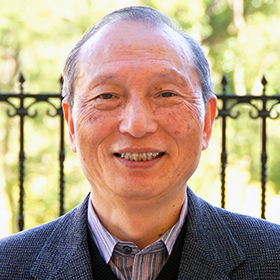“There might be something in common between working in the media and working globally. I would like to talk about that as today’s subject.”
In front of 100 students gathered at the Global Career Course, Tatsuo Gunji, who was NHK’s program director and currently works as a journalist, began his speech.
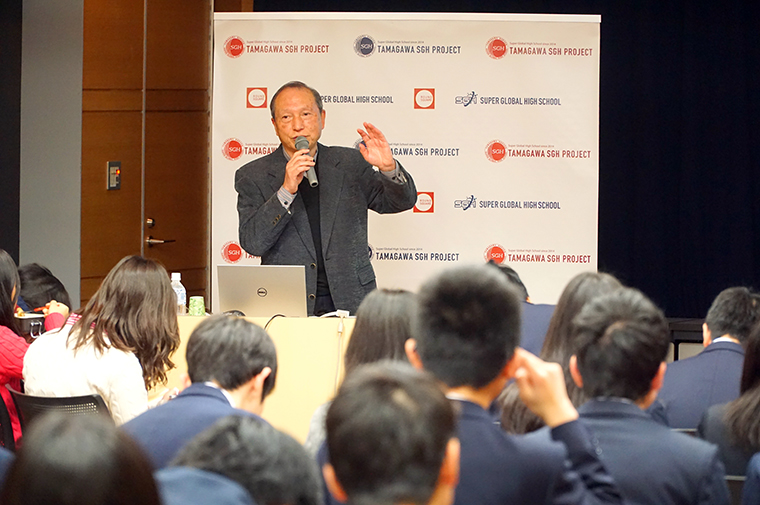
At, this lecture, Mr.Gunji talked about things he thought about while working in the media. Things such as “the challenges of the global era”, “the abilities needed to solve those problems” and “necessary skills for living in the future”.
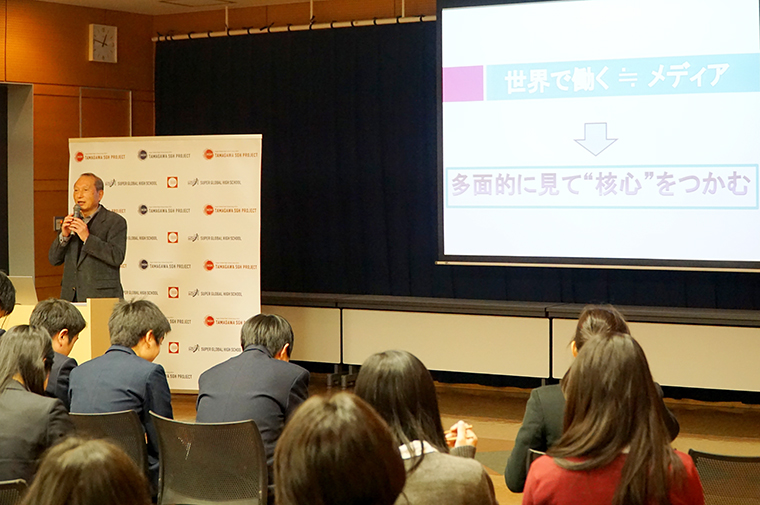
“There are major crises we may face, such as earthquakes, epidemics, nuclear war, and so on.” Mr. Gunji said.
The lecture started with him raising such points. He accurately and understandably explained the problems that the world faces now. He showed survey data and case studies to highlight these.
Mr. Gunji spoke as someone who has been thinking about world issues and issues in science, technology, and society which led the audience to be drawn into his presentation. His “experience” and reputation for “fairness as a media” backed up his persuasiveness.
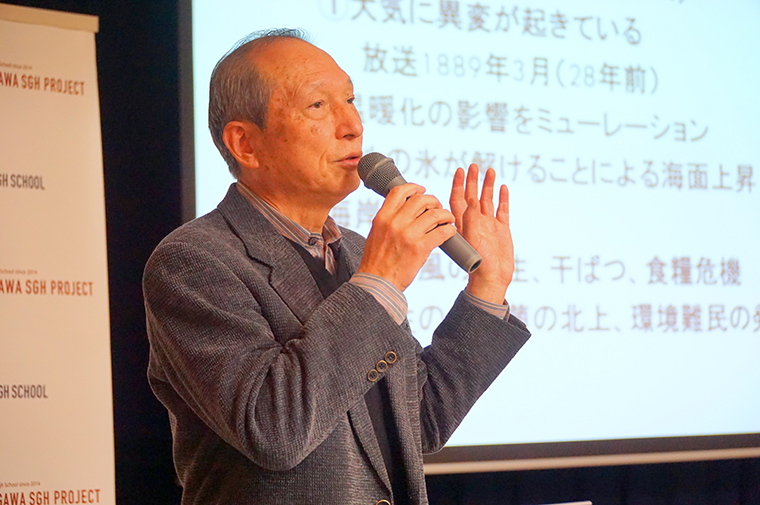
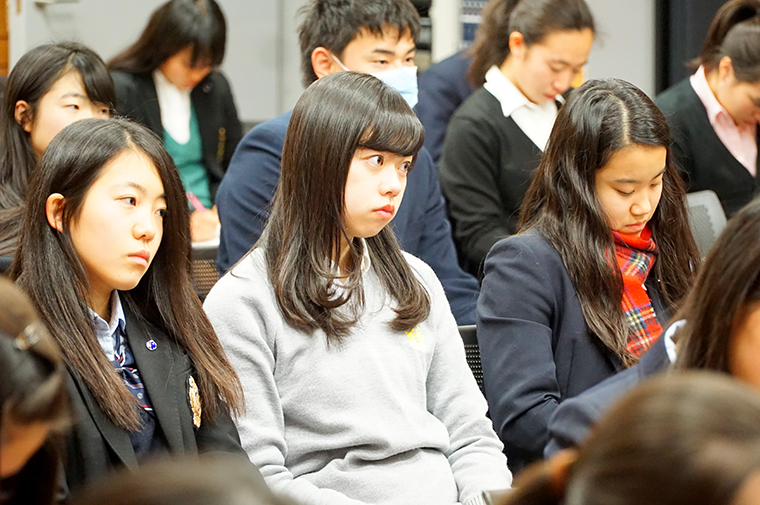
The audience then watched the first part of a documentary program from 1989 that triggered full-scale coverage of global warming problems that had not been familiar at that time and made them more widely known in Japan.
He said “The temperature will rise by 4.1℃ by 2050.” “Typhoons with wind speeds of 100m per second (360kph) will occur.” Students watched simulations that faithfully reproduced the results predicted by more than 70 scientists worldwide. Due to the power of the images, they could understand the magnitude of the impact of global warming and watched the screen with surprised expressions.
This program, produced for the purpose of helping people understand global warming, had a viewer rating of 20% and called for a big reaction. However, the alarm bells sounded by scientists and the media did not lead to social movements to improve problems causing global warming.
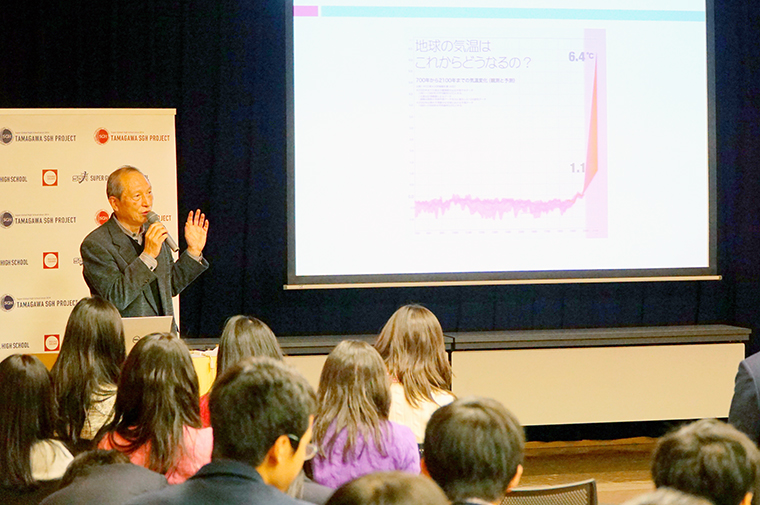
The COP (Convention on Climate Change Conference) in 1995 increased society’s attention on the issue, but the arguments were confused by conflict of interest among countries. The Paris Agreement was adopted at an international conference in 2015 and an agreement was reached then, which was 21 years later.
“This agreement was pushed for by Laurence Tubiana, who was appointed as head of the international conference, and the power she demonstrated at that time gave an example of what it means to really be active in the international community in the future”. Mr. Gunji explained.
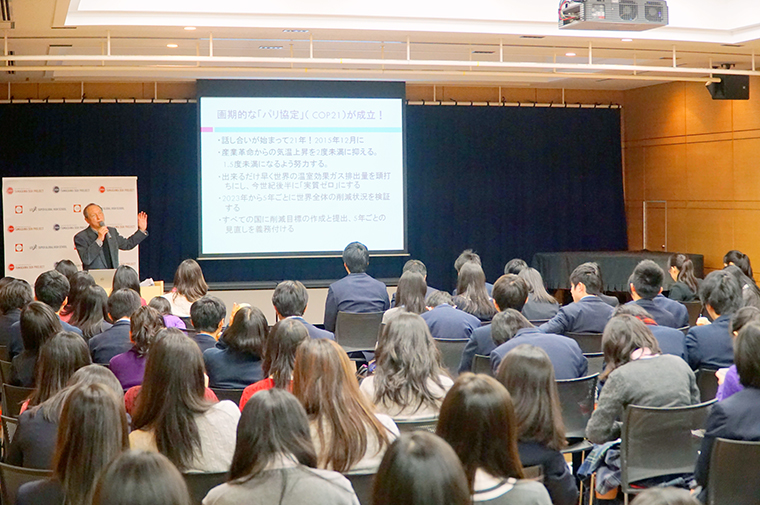
Ms. Tubiana was an excellent person with a good ability to see things in many ways and solve problems. She had a strong intention to not settle worked constantly in all night discussions and organizing the representatives of the countries in a multifaceted manner.
“This aspect of her “multifaceted view” is something that I want young people living in the current generation to acquire” along with Ms. Lawrence’s achievements, he conveyed the importance of that power.
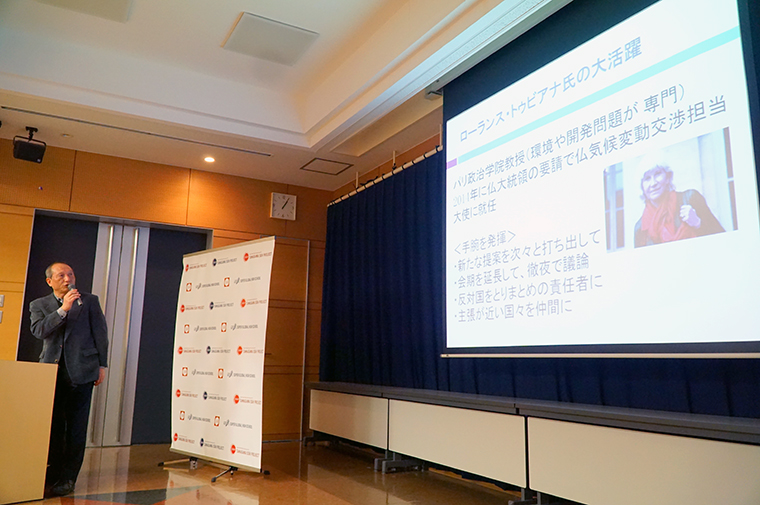
“In addition to the problem of global warming, there are many other problems in the world, and from now on, it will be a very uncertain and unprecedented age.” Mr. Gunji who faced theses global problems and the analyzed the era from his time working in NHK said that it is important to polish “the viewpoints a multifaceted approach.”.
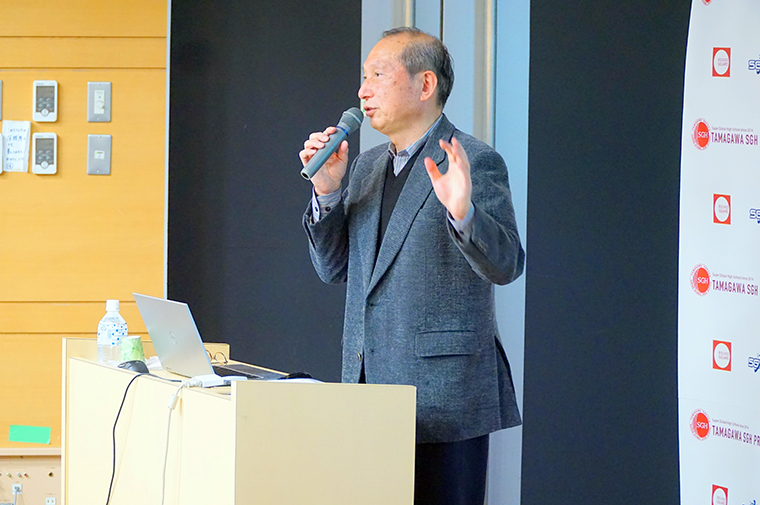
In terms of specific advice for cultivating eyes to see the world from various viewpoints, he introduced examples such as clipping stories from several newspapers each day, discussing the issues with young people, or sharing information on websites.
“What are we doing now, what kind of era are we living in, where is this era going to, and what we can do to improve this era? Always keep updating your knowledge and information gathering skills with and you will be able to see the reality of society.” he said, highlighting the importance of continuing learn.
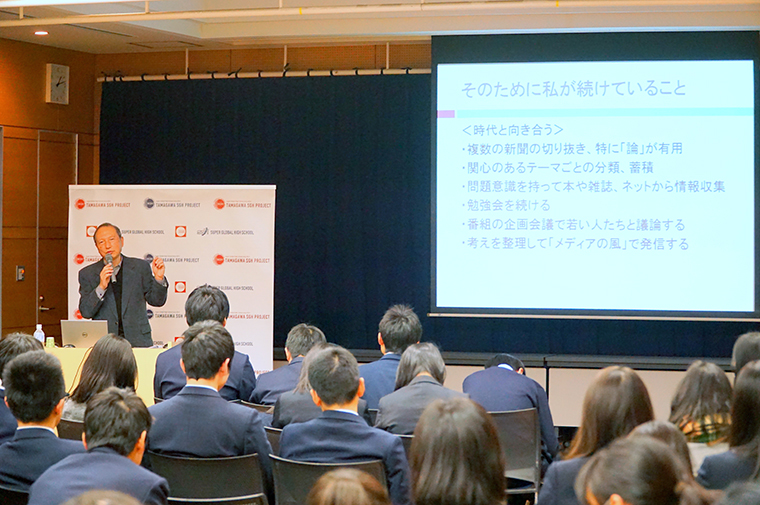
“People who work in the media and people working in global institutions interact with people of various philosophies. They have important things on their minds. It is important to not only focus on one aspect of things but to grasp the totality.”
At the end of the lecture, Mr.Gunji’s used his own experiences and thoughts to send a message.
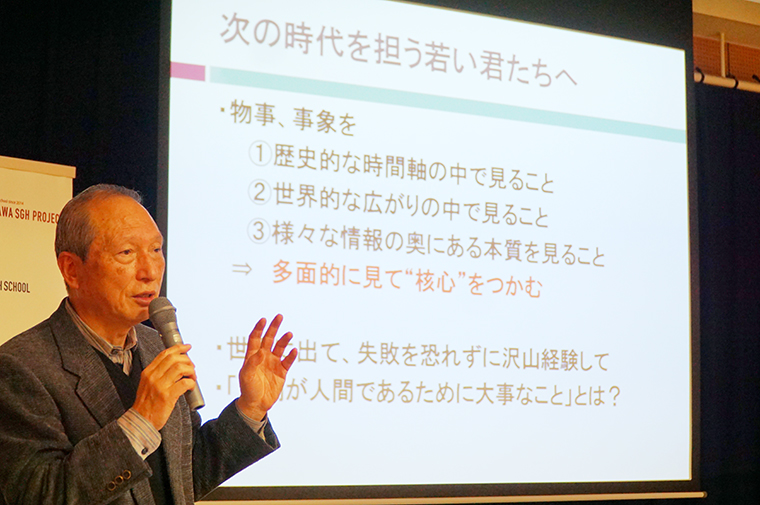
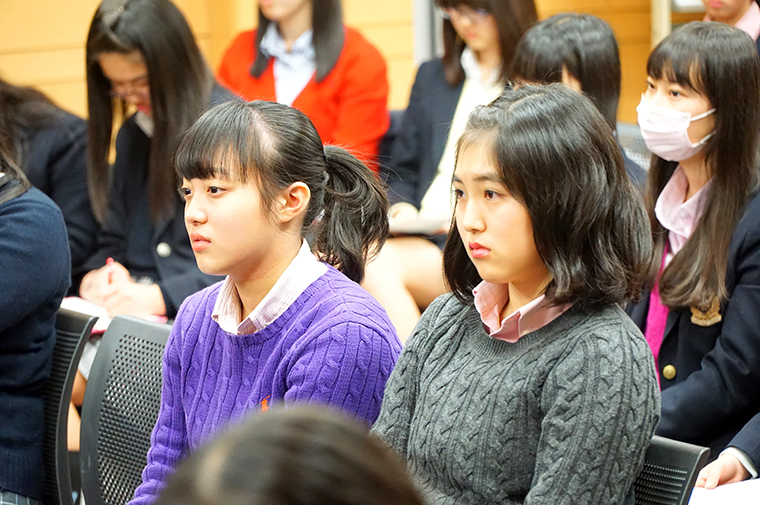
“How can we learn the truth that is not reported?” “How do you decide what to do when there are various viewpoints and all answers are correct?” After the lecture, Mr.Gunji took questions from the students and answered politely until the end of the time.
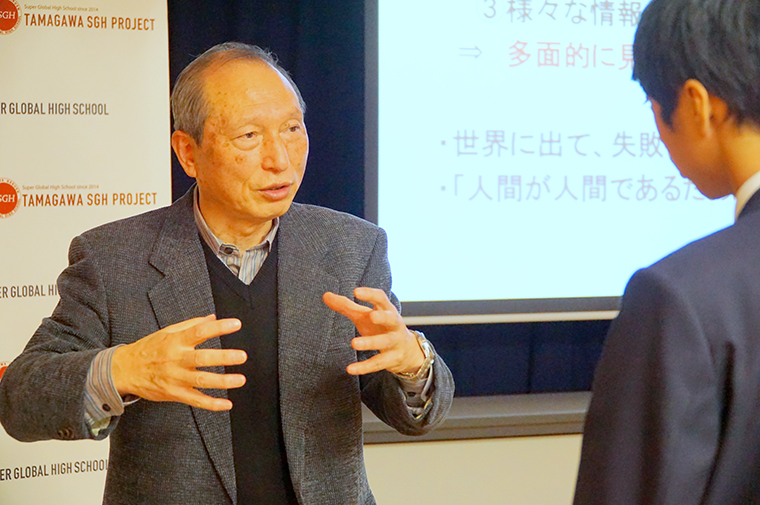
Students learned about “how to face society” in the global age. They will keep in mind that the “important things” do not change even in this era when information is everywhere.




